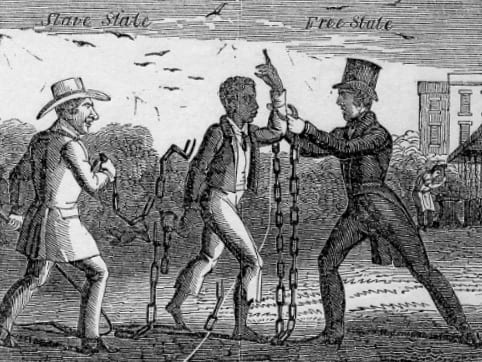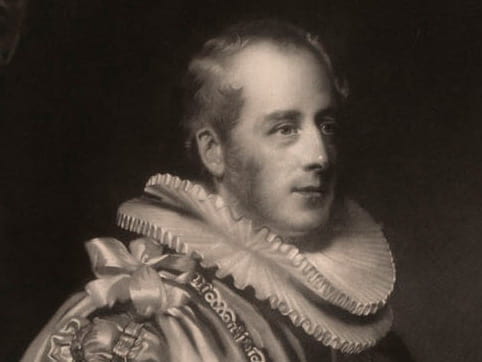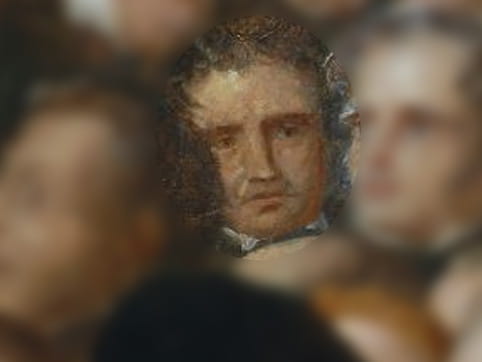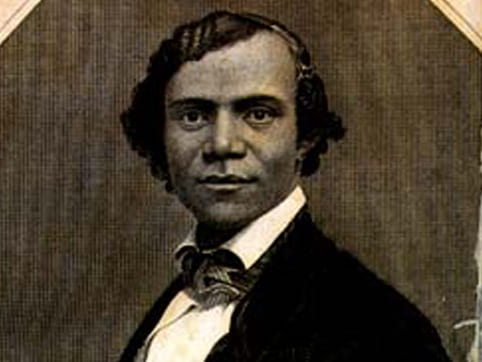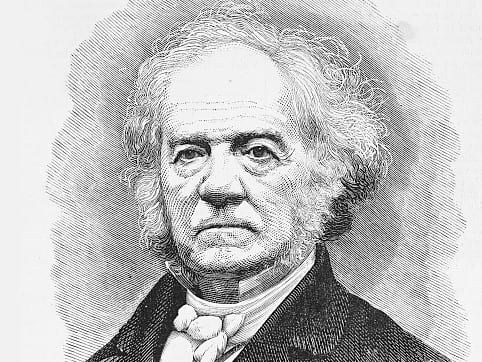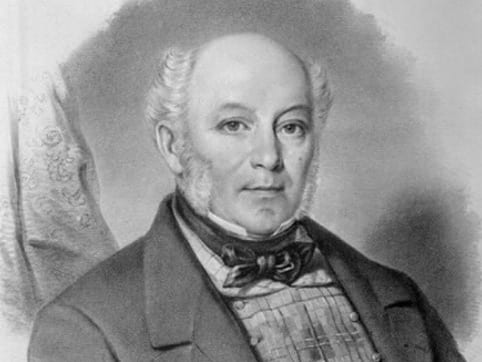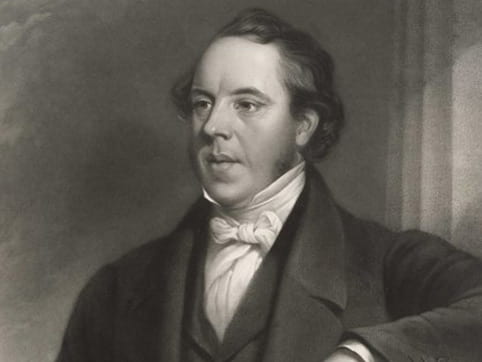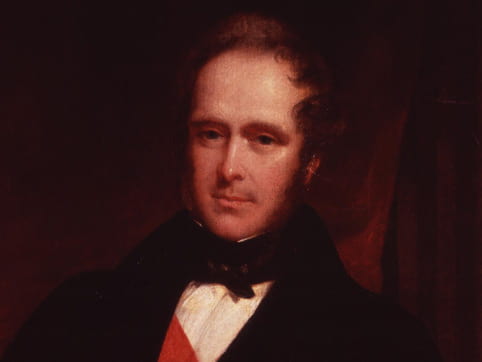Lord Ashburton
U.S. and British diplomats began negotiating a treaty, known as the Webster-Ashburton Treaty, to settle longstanding disputes between the United States and British North America concerning borders, use of the Great Lakes, the international slave trade, and the extradition of criminals. British diplomat Lord Ashburton and U.S. secretary of state Daniel Webster conducted negotiations in Washington, D.C. amid heightened tensions over the return of fugitives from slavery that had nearly brought the two countries to war.

George Peter Alexander Healy painted Lord Ashburton’s portrait in 1842, the same year that he negotiated the Webster-Ashburton Treaty. Image: Courtesy New York Historical Society.
The Players
Nelson Hackett
An escaped slave who fled to Canada only to be captured and brought back to Arkansas.
Alfred Wallace
The man who claimed to own Nelson Hackett and accused him of stealing a race horse, saddle, coat, 100 £ ($500) in silver and gold coin, and a watch.
Sir Charles Bagot
Soon after assuming office, Governor General Sir Charles Bagot made the decision to send Nelson Hackett back to Arkansas on charges of theft.
Charles Stewart
Abolitionist and attorney who had been one of the founding officers of the Detroit Anti-Slavery Society and who interviewed Nelson Hackett when he was held in Detroit.
Henry Bibb
Henry Bibb, one of the leaders of Detroit’s Colored Vigilant Committee, helped mobilize support for Nelson Hackett.
Hiram Wilson
Hiram Wilson an abolitionist and an American Reverend ministering to Toronto’s fugitive population who visited Hackett at Sandwich.
Daniel Webster
As United States secretary of state, Daniel Webster negotiated the Webster-Ashburton Treaty in 1842.
Lewis Tappan
Lewis Tappan led the American abolitionist effort to amend the Webster-Ashburton Treaty.
Sir Allan Napier MacNab
Sir Allan Napier MacNab presented “Address of the Colored People of Hamilton,” which protested Nelson Hackett’s return to Arkansas, to Queen Victoria and Prince Albert.
Thomas Clarkson
Thomas Clarkson fought to abolish slavery in the British Empire and the international slave trade before turning his attention to Nelson Hackett and the Webster-Ashburton Treaty.
Viscount Palmerston
Viscount Palmerston led the effort in the House of Commons to amend the Webster-Ashburton Treaty to protect fugitives from slavery from extradition.
